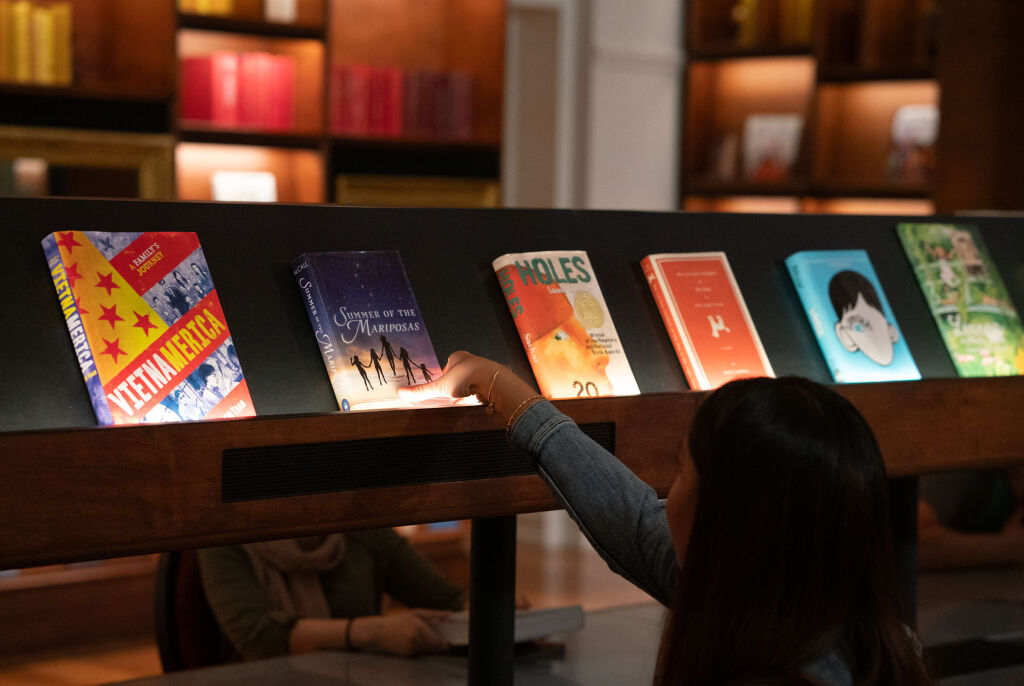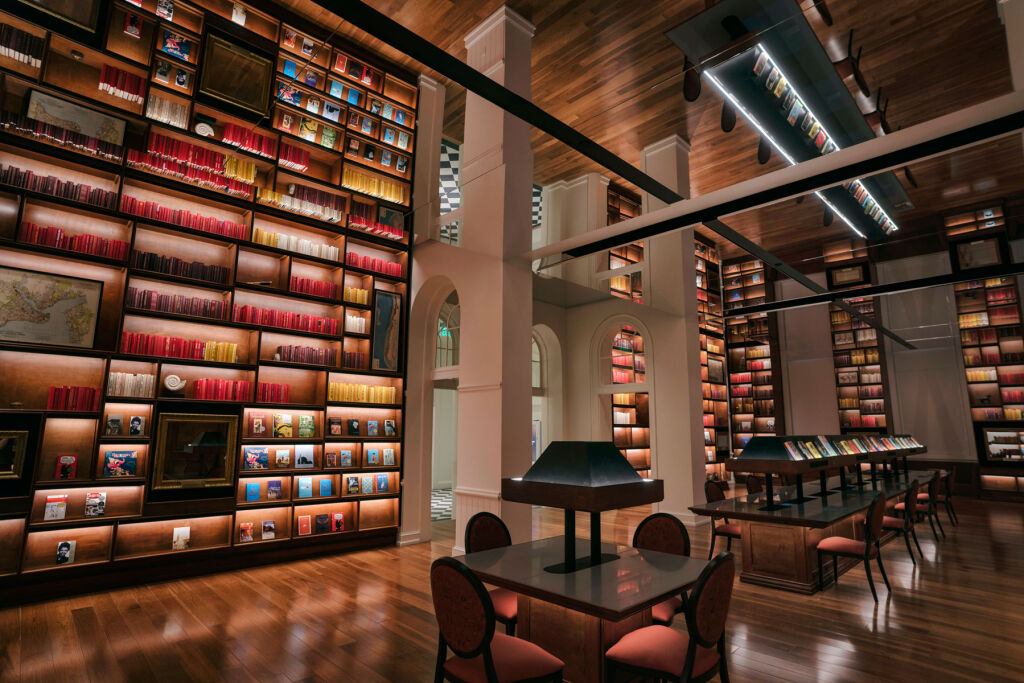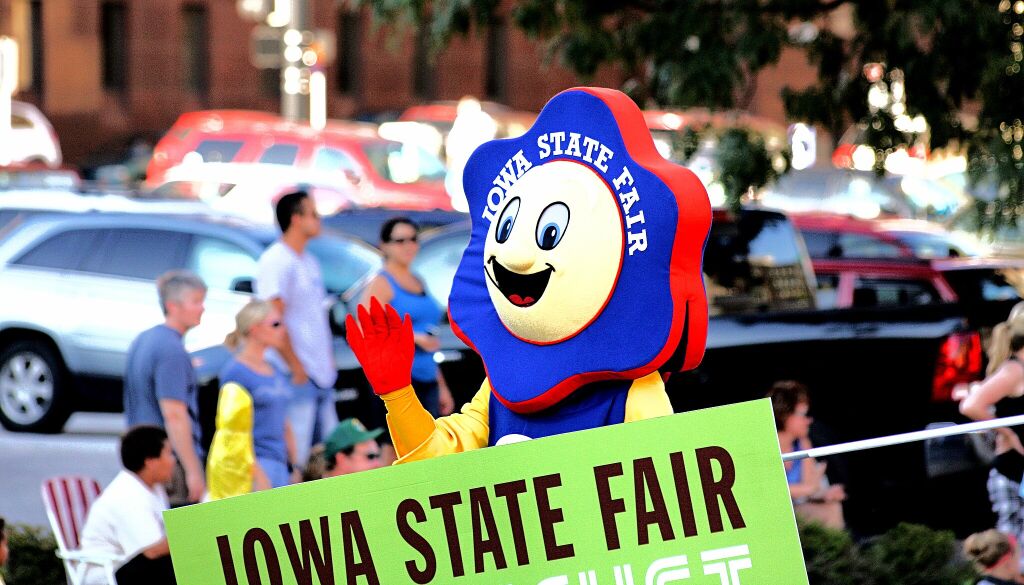Freedom of Speech
While planning Planet Word, I had to become familiar with a lot of new — at least for me — topics and the often-unfamiliar words and phrases that applied to them:
- Construction terminology, like the difference between muntins and mullions.
- The lexicon of linguistics: corpora, collocations, metonymy, lingua franca.
- Legal terms such as fair use and most-favored-nation.
- The specialized vocabulary of museum design: AV integration, lumens, and dwell time.
But in the end, the subject that was the most important for me to study and grapple with was more fundamental and difficult: our Constitution. What should a museum devoted to words and language believe and be willing to defend regarding freedom of speech? I knew that sooner or later we’d have to take a stand.
When I started planning Planet Word in 2013, this was a mostly theoretical issue, not one I expected to confront on a daily basis. Yet here we are. Not a day goes by when we’re not facing the issue and hearing claims — even from the president of the United States — that someone’s freedom of speech has been violated.
Free speech absolutists, who argue that all speech is protected by the First Amendment, believe people should be free to say whatever they want, passionately arguing that the antidote to hate speech is more speech, not less. That perspective led to neo-Nazis being allowed to march through Skokie, Illinois, in 1978, even though it was home to a heavily Jewish population. That meant the fringe Westboro Baptist cult, because of their opposition to the armed services’ Don’t Ask Don’t Tell policy, was allowed to protest near funerals of U.S. soldiers and their grieving families. All these — in my opinion — abhorrent actions were allowed under the banner of the First Amendment and freedom of speech. Despite some unease, I grudgingly accepted that this was overall a positive stance for democracy.
Maybe one reason I felt this way was that I had attended Roosevelt High School in Des Moines, just when the Tinker case was decided by the Supreme Court. In that case, two Roosevelt students successfully challenged their suspension for wearing black armbands to protest the Vietnam War. How proud I was of those brave Roosevelt Roughriders who had stood up for their right to free expression – without disrupting classes or forcing others to agree to their point of view! What a win for freedom of speech!
But I knew there was another side to the argument… we all know that people aren’t free to shout “fire” in a movie theater. And freedom of speech doesn’t extend to slander or to instigations of violence toward a person or group that is likely to occur and imminent (which is why Apple and Google decided to halt their app stores from downloads of Parler, which for a while allowed posts saying Vice President Mike Pence should be executed for not helping the fight to overturn the election results and, even more incredulously, that “20 coordinated assassinations” were all that would be needed to “take back our country”).
So the courts had allowed some limits to free speech, and I sought to understand when such limitations were a net positive. As David Von Drehle argued in the Washington Post on January 8, free expression mustn’t feed demagoguery, which would only lead to anarchy and repression, and the end to all such free expression. Supporting arguments put forth by Justice Oliver Wendell Holmes, Jr., he wrote, “We can, and do, argue over where the freedom ends and the misuse begins, but unless a line is drawn somewhere, the freedom cannot endure.”
At a museum where visitors are introduced to the stunning diversity of the world’s spoken languages, at a museum where the books and poems and voices enable all visitors to see themselves reflected within its walls, at a museum whose restaurant will offer food from many different immigrant cultures, how could we not limit speech to words that reflected our commitment to tolerance and understanding?
So that was the position that Planet Word had to take. Should a museum dedicated to words and language limit their use within its walls or under its auspices? The unequivocal answer was yes. Only when we freely agree to limit our speech to words that unite rather than divide can we protect the wider freedoms that we so rightly cherish.



